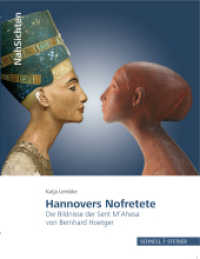Full Description
This book presents a survey of approaches to dealing with 'rival histories' in the classroom, arguing that approaching this problem requires great sensitivity to differing national, educational and narrative contexts. Contested narratives and disputed histories have long been an important issue in history-teaching all over the world, and have even been described as the 'history' or 'culture' wars. In this book, authors from across the globe ponder the question "what can teachers do (and what are they doing) to address conflicting narratives of the same past?", and puts an epistemological issue at the heart of the discussion: what does it mean for the epistemology of history, if it is possible to teach more than one narrative?
Divided into three sections that deal with historical cultures, multicultural societies and multiperspectivity, the chapters of the book showcase that dealing with rival histories is very much dependent on context, and that diverse teaching traditions and societal debates mean that teachers' abilities in engaging with the teaching of rival narratives are very different. The volume will be compelling reading for students and researchers in the fields of education, history, sociology and philosophy, as well as practising teachers.
Contents
Chapter 1. Introduction: Epistemology of Rival Histories; Henrik Åström Elmersjö, Anna Clark & Monika Vinterek.- PART I. Historical Cultures and National Histories.- Chapter 2. An Early Attempt to Approach Rival Histories: Epistemological Impediments to Transnational History Teaching - a Scandinavian Example; Henrik Åström Elmersjö.- Chapter 3. The Lure of Grand Narratives: A Dilemma for History Teachers; Sirkka Ahonen.- Chapter 4. Bridging History Education and the Diversity of Historical Cultures; Arja Virta.- PART II. Official Histories in Multicultural Societies.- Chapter 5. Text and Contexts: Pedagogical Practices for a History Textbook Lesson on the 1947 British India Partition; Meenakshi Chhabra.- Chapter 6. Teaching History for Narrative Space and Vitality: Historical Consciousness, Templates, and English-speaking Quebec; Paul Zanazanian.- Chapter 7. Mediating Collective Memories and Official Histories in Conflict-Affected Societies: Pedagogical Responses to 'Individual' Narratives and Competing Collective Memories; Zvi Bekerman & Michalinos Zembylas.- PART III. Critical Thinking and Multiperspectivity.- Chapter 8. How to Make School History More Controversial? Controversies in History Education in Poland; Joanna Wojdon.- Chapter 9. Teaching about the First World War in England: Exploring Controversy and Competing Historical Interpretations; Stuart Foster.- Chapter 10. Promoting a Historiographic Gaze through Multiperspectivity in History Teaching; Thomas Nygren, Monika Vinterek, Robert Thorp & Margaret Taylor.- Chapter 11. After the Ideological Battles: Student Views on Sources Representing the Gallipolli Conflict; Heather Sharp.- PART IV. Epilogue.- Chapter 12. Teaching Rival Hsitories: In Search of Narrative Plausibility; Peter Seixas.








